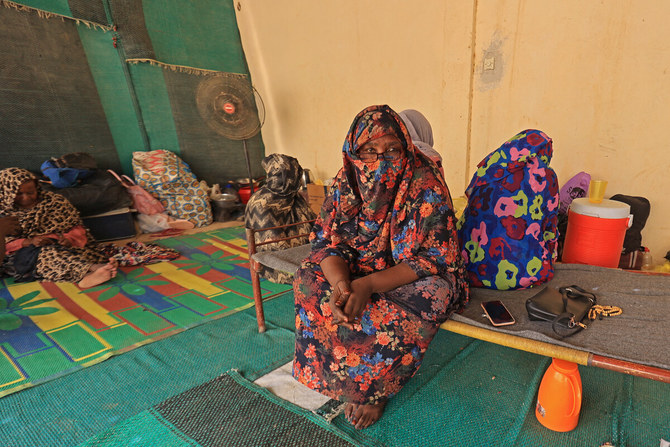LONDON: The effects of the humanitarian crisis caused by conflict in Sudan, its effects on the wider region, and what is needed to address it were the main focal points of a panel discussion on Wednesday organized by National Centre for Social Research, an independent social research agency in the UK, and Shabaka, a consulting and research organization that specializes in diasporas and the humanitarian needs of migrants.
The participants considered the current situation in the country, the regional response to the conflict and the displacement it has caused, and what can be done by the international community, local groups, and the diaspora.
Bashair Ahmed, the CEO of Shabaka, said shortage of money, a lack of protection, sexual and gender-based violence, the sheer size of the displaced population, and climate change are among the factors that have dashed hopes of a quick recovery.
Sudan has been plunged into crisis by a conflict that broke out in April between the Sudanese Armed Forces and rival military faction the Rapid Support Forces. More than 3 million people have been displaced, internally and to neighboring countries, creating a humanitarian crisis that has put “unsustainable” pressure on international aid organizations and the nations hosting the refugees.
Faith Kasina, a spokesperson and communications officer with the UN Refugee Agency, said a stronger regional response and the creation of safe corridors for the delivery of humanitarian aid are vital to the efforts to help a country being battered by a war that has left at least 1,136 people dead and 12,000 injured.
“There needs to be humanitarian corridors, pragmatism, ending hostilities, localization, more to be done in the neighboring countries, protection across the borders,” she said.
“People in Sudan are lacking access to basic services, shelters, education, access to justice, monitoring. The rates of SGBV (sexual and gender-based violence) are increasing and there is little being done to take accountability and implement changes and actions.”
Participants in the discussions also stressed the need for increased funding, globally, to help address the growing demand for humanitarian aid.
Ahmed, the Shabaka CEO, said aid budgets are stretched thin, adding: “There are so many problems around the world, it’s overwhelming.” But she noted that many countries have shown “great solidarity” by taking in refugees, despite the lack of resources and accommodation.
She said a variety of factors have contributed to the shortfalls in funding for humanitarian aid budgets, including the COVID-19 pandemic, climate change, and rising inflation in many countries that is making humanitarian operations increasingly expensive and difficult to sustain.
Kasina suggested that despite the challenges, policymakers can take a number of steps to improve the conditions under which humanitarian aid operations are deployed. She highlighted the importance of improved coordination between international and regional organizations, for example, along with greater attention and support for local and domestic organizations, and the empowerment of regional civil society groups.
Sherine El-Taraboulsi, director of NatCen International, the global arm of the National Centre for Social Research, said there was a strong link between the effects of foreign policies and humanitarian work. She urged organizations to work more closely with diaspora workers to address aid gaps, and stressed the importance of listening to locals, the role of civil society, and advocacy.
The panelists also discussed the role of regional organizations such as the African Union. Ahmed noted that such organizations have a presence at the front lines of the conflict in Sudan, along with the experience and knowledge required to help resolve it, and called for them to be included in the response to the crisis.























